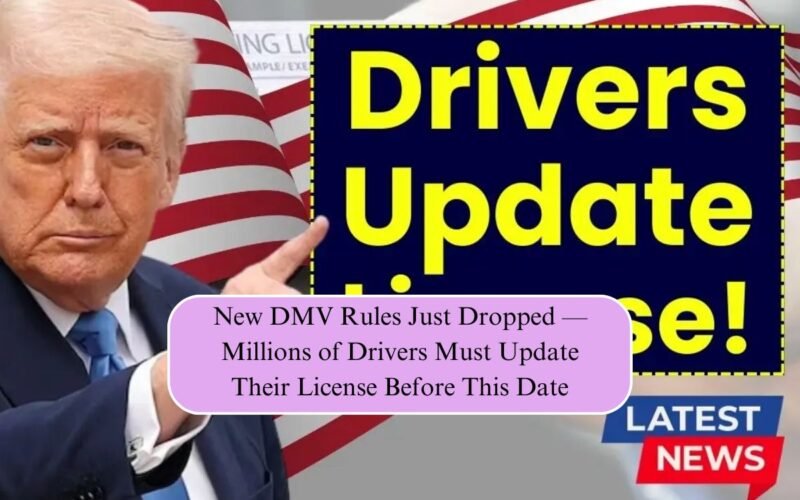A major change is coming for drivers across the United States as the Department of Motor Vehicles (DMV) rolls out new federal and state-level requirements for driver’s license renewals and compliance. The updated regulations mean that millions of Americans will need to update or renew their driver’s licenses before the official enforcement deadline to avoid complications when traveling, driving, or verifying identity.
Why the New DMV Rules Are Being Enforced
The latest changes stem from updated federal security and identification standards, including the REAL ID Act, which aims to enhance identity verification and reduce fraud. The DMV is now requiring additional documentation for renewals and new applications. In several states, new digital systems and security upgrades are also being introduced to modernize the licensing process.
These updates are part of a nationwide effort to align state-issued IDs with federal security standards used for domestic air travel, government building access, and certain financial transactions.
What Drivers Need to Do
Drivers are required to renew or upgrade their current licenses by the specified date — often tied to the REAL ID enforcement deadline. Depending on your state, you may need to provide updated documents, including:
- Proof of U.S. citizenship or lawful presence (such as a passport or birth certificate)
- Social Security number verification
- Two proofs of residential address, such as utility bills or lease agreements
- Existing driver’s license or state-issued ID
Many DMV offices are encouraging residents to schedule renewal appointments early, as processing times can vary depending on location and demand.
Who Is Most Affected by the Change
The new regulations affect all U.S. drivers, but seniors and frequent travelers will feel the impact most directly. Older adults who may not have updated identification documents or who rely on driver’s licenses for federal identification will need to take action promptly.
In some states, additional vision and road test requirements have also been implemented for drivers over a certain age, generally between 65 and 75, to ensure safety compliance.
Key Deadlines to Remember
The DMV has confirmed that failure to update your license before the federal deadline may result in travel delays or denial of access to certain government facilities. While the exact date varies by state, most jurisdictions have set their renewal deadlines within the next year. Drivers are encouraged to verify their local DMV’s renewal date to stay compliant.
What Happens If You Don’t Update Your License
If your driver’s license does not meet new compliance standards by the enforcement date, it may no longer be valid for air travel or federal identification purposes. While you can still drive legally within your state until expiration, the lack of a compliant ID could cause issues during airport security checks or when accessing certain public services.
FAQs
1. Why are the DMV rules changing now?
The new rules are part of a federal effort to implement REAL ID requirements and strengthen identity verification across all states.
2. Who needs to update their driver’s license?
All drivers are affected, but seniors and frequent travelers should pay particular attention to ensure their IDs meet updated federal standards.
3. What documents do I need to renew my license?
You’ll typically need proof of citizenship, Social Security number, and two documents showing your current residential address.
4. What happens if I don’t update my license before the deadline?
Your license may no longer be valid for federal identification, including domestic air travel, and could cause delays when accessing government buildings or services.
5. Can I still drive if I don’t have a REAL ID-compliant license?
Yes, you can still drive legally, but your non-compliant license won’t be accepted for federal identification purposes.

